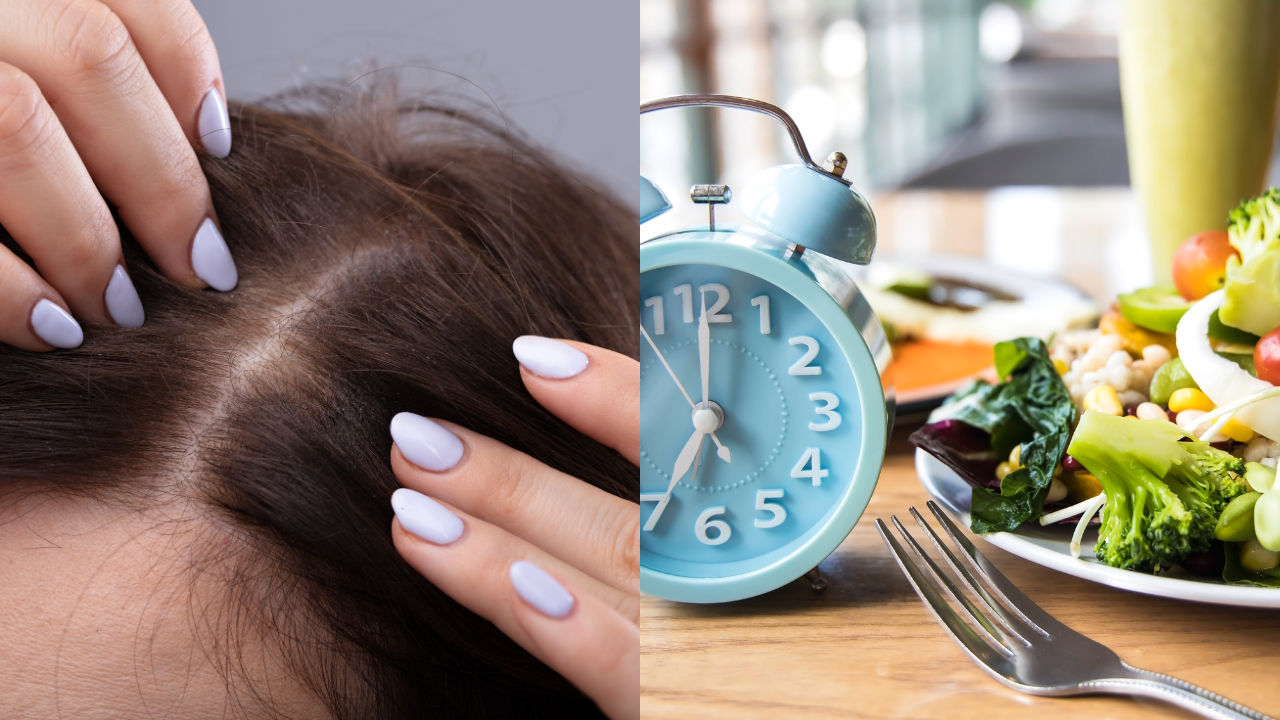-
news
-
Health
Are you also following this diet plan? A study says it can affect the health of your hair
Intermittent fasting doesn’t mean compromising the health of your hair. One can maintain a balanced diet and careful nutritional practices while following the path of fasting without worrying about thinning hair.

Image – Canva
It’s true that intermittent fasting is one of the popular diet trends, which involves switching between periods of eating and fasting to boost metabolism, weight management, and general health. It does not decide what to eat, but rather when to eat. Although it may provide many potential benefits, recent research has drawn attention to its potential harm: its effect on hair follicle regeneration.
The most common methods include the 16/8 method, where the person fasts for 16 hours and eats in 8-hour intervals, and the 5:2 method, where the person eats normally for five days and eats normally for two days in a row. Reduces calorie intake. ,
A recent study published in Cell by Chinese researchers showed that extended fasting resulted in impaired hair follicle regeneration in rats. The findings pointed out stress on hair follicle stem cellsDue to which they die prematurely due to prolonged fasting. This effect was linked to adrenal activation during nutrient-deficient conditions and led to slower hair growth within the fasting group.
However, it should be noted that human metabolism and hair growth cycles differ from those of rats. Thus, while this study provides many insights, its impact on humans is unclear. However, if you’re into intermittent fasting, you may wonder how you can still maintain your hair health despite this discovery.
Change your diet for healthy hair growth
- Protein Rich Foods: Hair is essentially protein based. You should include foods like eggs, low-fat meat and legumes in your diet for adequate protein consumption.
- Biotin and Zinc: These minerals are essential for hair strength and growth. Their food sources should be part of your diet: nuts, seeds and whole grains.
- Iron and Vitamin D: Nutrients like iron (found in spinach and pulses) and vitamin D (obtained from fortified foods or sunlight) help maintain the health of hair follicles.
- Omega-3 fatty acids: Omega-3 fatty acids, known to support scalp health and hair growth, are found in fish, flaxseed, and walnuts.
- Hydration: Drink water appropriately during non-fasting times and keep your head hydrated. Maintain healthy circulation.
- Avoid nutritional gaps: Include a balanced mix of fruits and vegetables for vitamins A, C and E, which contribute to a healthy scalp environment.
- Supplement wisely: Consider taking a hair supplement with keratin, collagen, or a multivitamin to offset any deficiencies caused by intermittent fasting.
Get the latest news live on Times Now with breaking news and top headlines from around the world.


